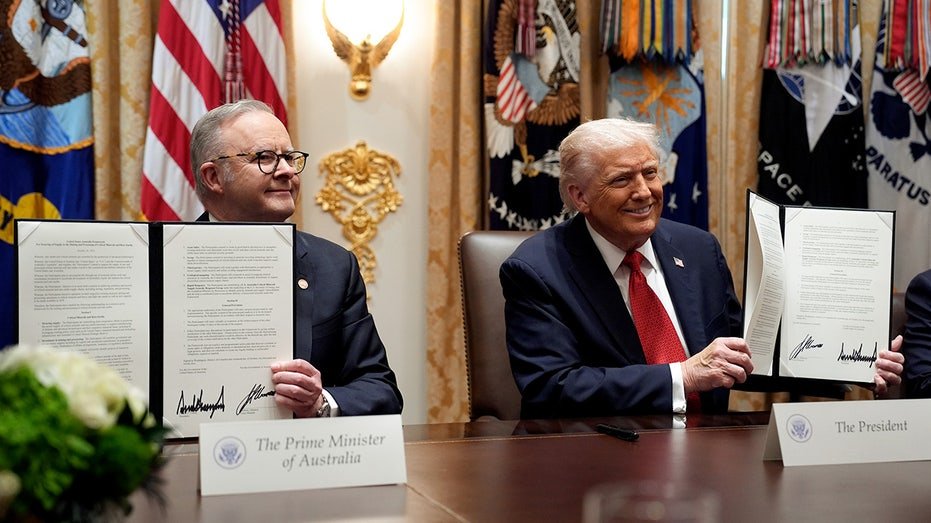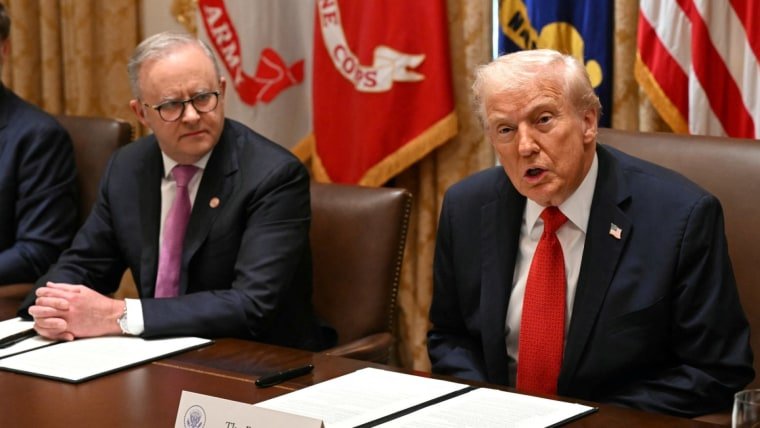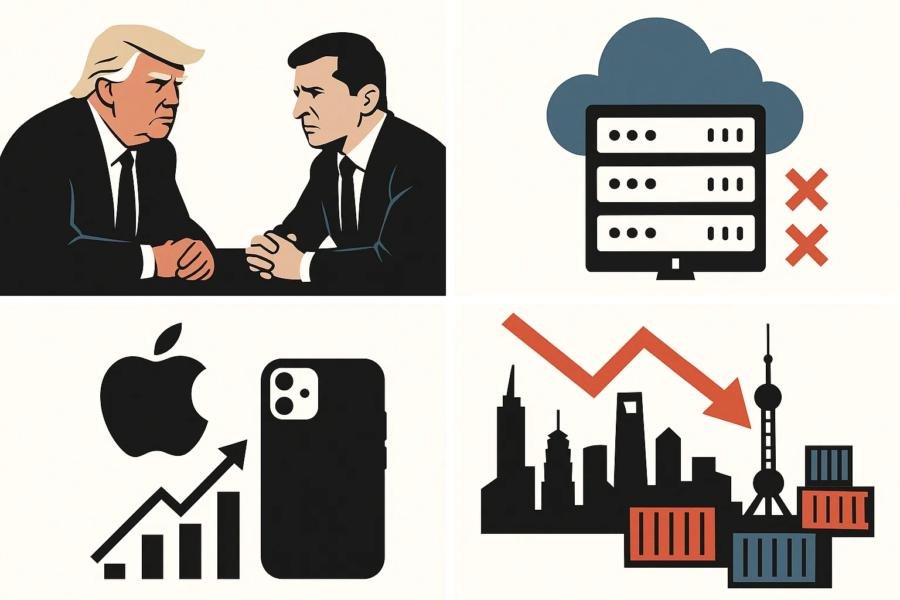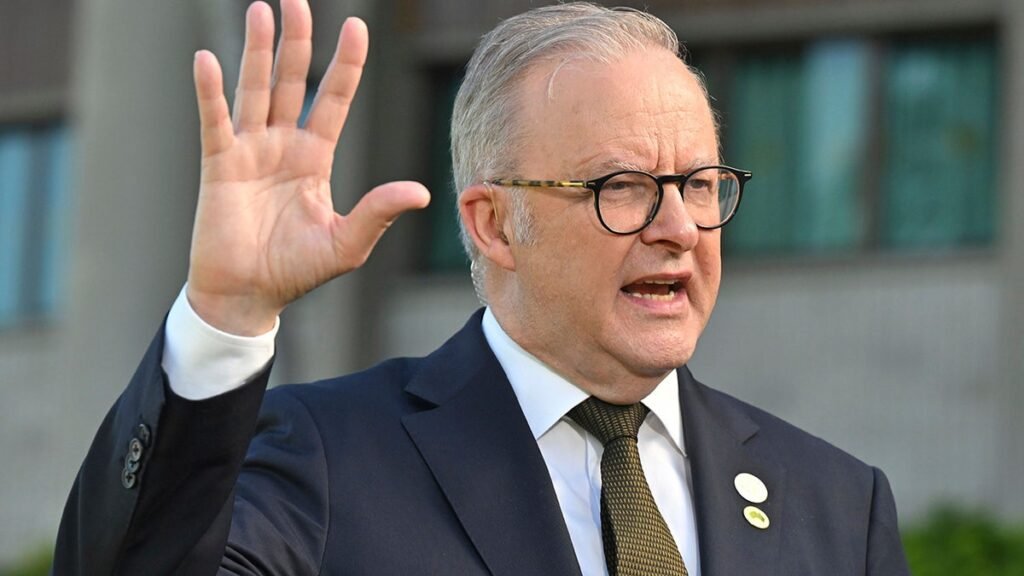US President Donald Trump voiced doubt Monday that China would invade Taiwan as he voiced confidence in his relationship with counterpart Xi Jinping, whom he will meet later this month.

Trump was asked about an earlier Pentagon assessment that Xi was eying 2027 to attempt to seize Taiwan, a self-governing democracy claimed by China.
“I think we’ll be just fine with China. China doesn’t want to do that,” Trump told reporters as he met Australian Prime Minister Anthony Albanese.
Speaking of Xi’s designs on Taiwan, Trump said: “Now that doesn’t mean it’s not the apple of his eye, because probably it is, but I don’t see anything happening.”
Without explicitly saying he would authorize force to defend Taiwan, Trump said that China knows that the United States “is the strongest military power in the world by far.”
“We have the best of everything, and nobody’s going to mess with that. And I don’t see that at all with President Xi,” Trump said.
“I think we’re going to get along very well as it pertains to Taiwan and others,” he said.
Trump will hold his first meeting with Xi of his second term when the leaders of the world’s two largest economies visit South Korea later this month for an Asia-Pacific summit.
Trump said his priority was reaching a “fair” trade deal with China. He declined to answer a question on whether he would sacrifice US support for Taiwan as part of an agreement with Xi.
“I want to be good to China. I love my relationship with President Xi. We have a great relationship,” Trump said.
The United States recognizes only Beijing and not Taiwan, where the Chinese mainland’s defeated nationalists fled in 1949 after losing the civil war to the communists and which has since turned into a flourishing democracy and technology hub.
Under US law, the United States is required to provide Taiwan weapons for its self-defense but Washington has been deliberately ambiguous on whether it would use force to defend Taiwan.
Trump’s predecessor Joe Biden repeatedly suggested he would order the US military to intervene if China moved on Taiwan.






